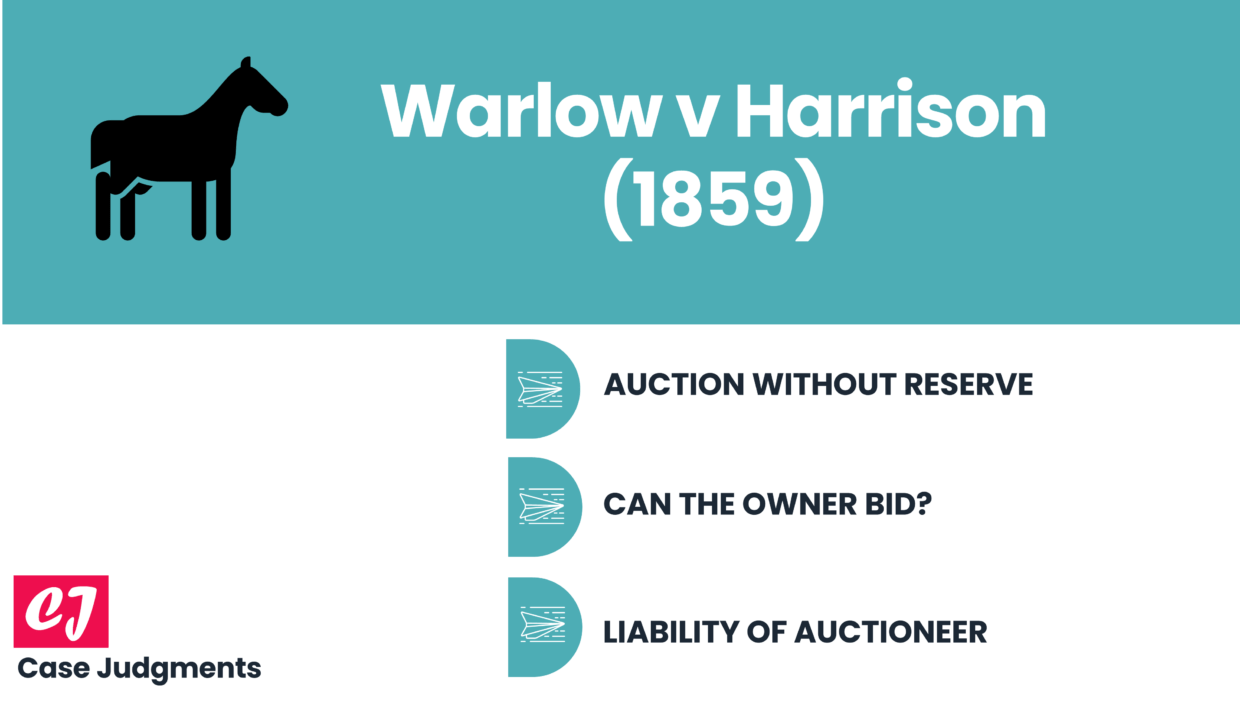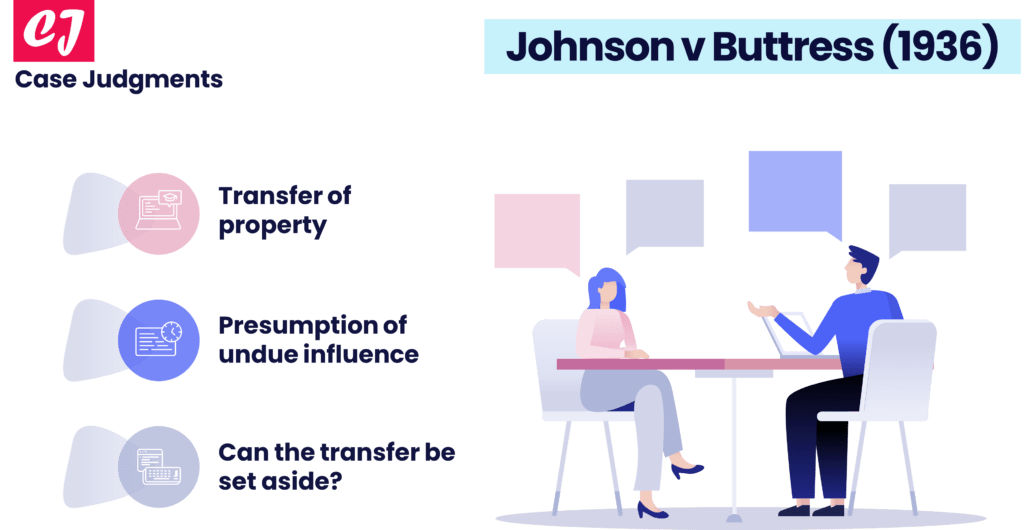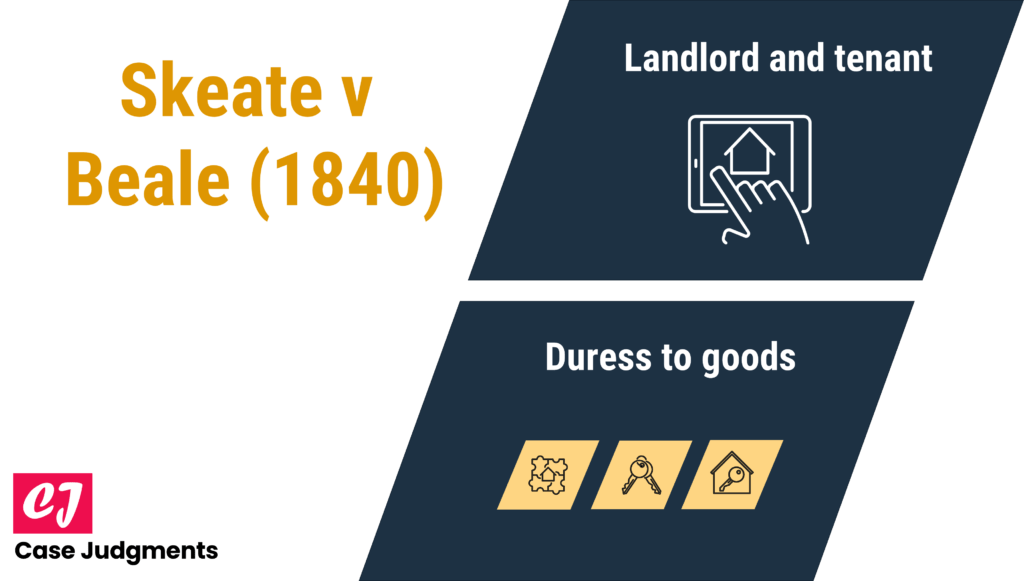
A Summary of Warlow v Harrison (1859) Case
Warlow v Harrison (1859) is an English contract law case that talks about the liability of an auctioneer when he fails to sell the auctioned property to the highest bona fide bidder in an auction without reserve.
| Case name: | Warlow v Harrison |
| Case citation: | (1859) 1 E & E 309, 120 ER 925 |
| Court: | The Court of Exchequer Chamber |
| Jurisdiction: | England & Wales |
| Date/year: | 26 November 1859 |
| The learned judge: | Martin B |
| Area of law: | Auctions (and individual items) advertised without reserve |
Facts of the case (Warlow v Harrison)
The defendant, an auctioneer, offered a horse for sale at a public auction with no reserve. The plaintiff attended the auction and placed a bid of 60 guineas. The horse’s owner placed a bid of 61 guineas. The plaintiff declined to make any further bids, and the defendant (who appears to have been unaware that the bidder was the owner) put down the hammer to sell the horse to the owner for 61 guineas.
The plaintiff asserted that the horse belonged to him because he was the highest bona fide (true) bidder at an unreserved auction. The plaintiff claimed in his pleadings that the defendant served as his agent to carry out this contract.
Issue that arose
Whether there was a contract between the auctioneer and the plaintiff?
Could the plaintiff sue the auctioneer for letting the owner buy the horse?
Judgement of the Court in Warlow v Harrison
The plaintiff had no claim based on the pleadings because there was no agency relationship between the plaintiff and the defendant.
But according to the Court, it was held that a collateral contract between the auctioneer and the highest bona fide bidder exists when items are offered for sale without a reserve.
Since the auctioneer breached this contract, the plaintiff was entitled to sue him.
(Please refer to the reasoning given below to understand the judgement better.)
The reasoning behind the decision
There were two contracts in this case. First, there was the bilateral sale agreement, which determined who would buy the items. The plaintiff’s bid was an offer in this context, but because it was not accepted, he was not entitled to the horse. That is to say, the hammer was knocked down in favor of the owner.
The advertisement of an auction sale without reserve, however, is a unilateral promise by the auctioneer that no reserve will be applied, therefore there was a second agreement. Only the highest genuine bidder, according to Martin B (the learned judge), may accept this unilateral offer. In other words, the auctioneer is bound to sell only to the highest bona fide bidder. In the instant case, this offer was undoubtedly accepted by the plaintiff, and the auctioneer would be held accountable for damages for violating his promise that there would be no reserve.
It is common practice for the owner and anyone acting on his behalf to refrain from bidding throughout the bidding process. Even if the property’s value is not equal to the market value, it must be sold to the highest bona fide bidder.
The horse couldn’t be sold to the owner, given that it was an auction without reserve. Therefore, for breaking his promise that there would be no reserve, the auctioneer would be held liable for damages.
References used:
- https://www.pbookshop.com/media/filetype/s/p/1405700635.pdf
- https://www.legum.app/courses/law-of-contract/cases/case-briefs/6vx4xtNlwxG1dkq7jovu
- https://www.lawteacher.net/free-law-essays/contract-law/fundamental-elements-of-a-contract-contract-law-essay.php
You might also like:
More from contract law:

